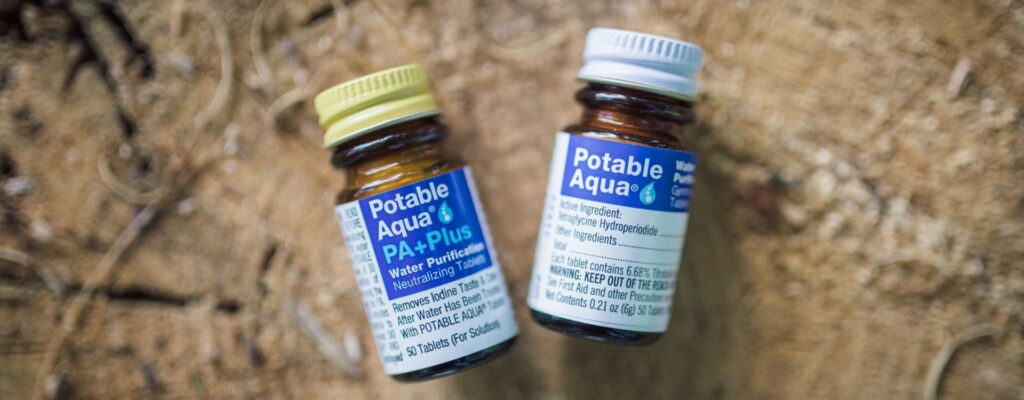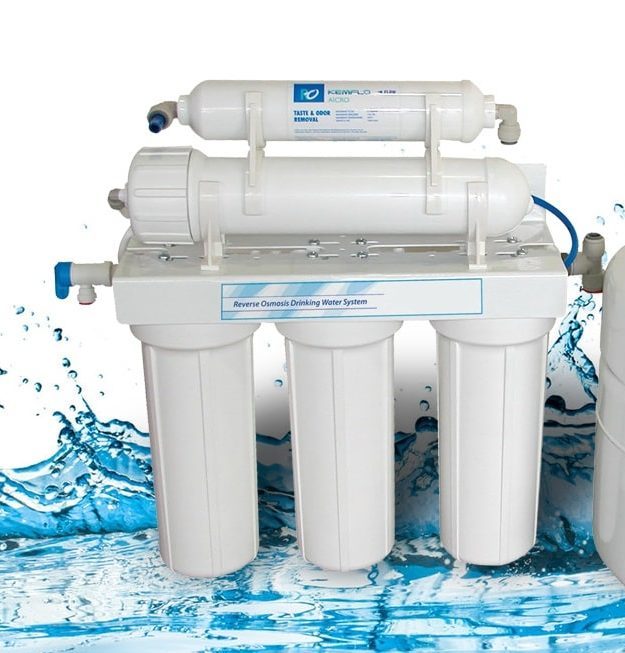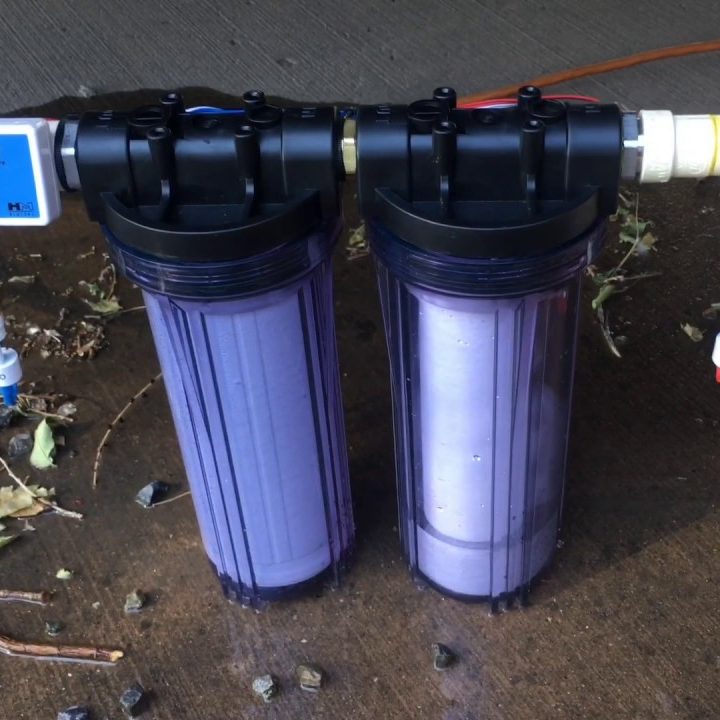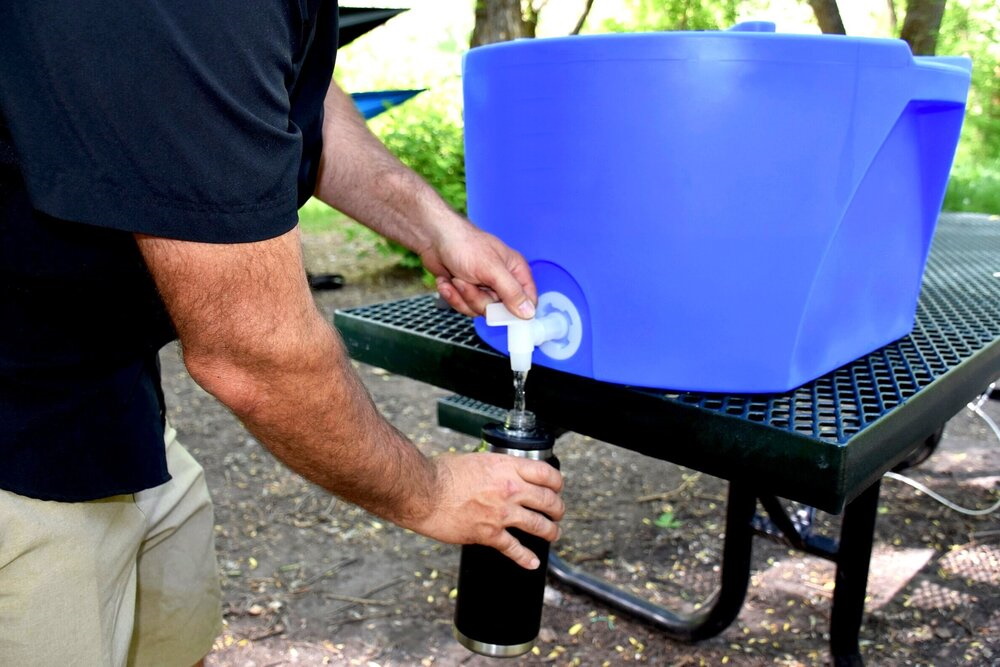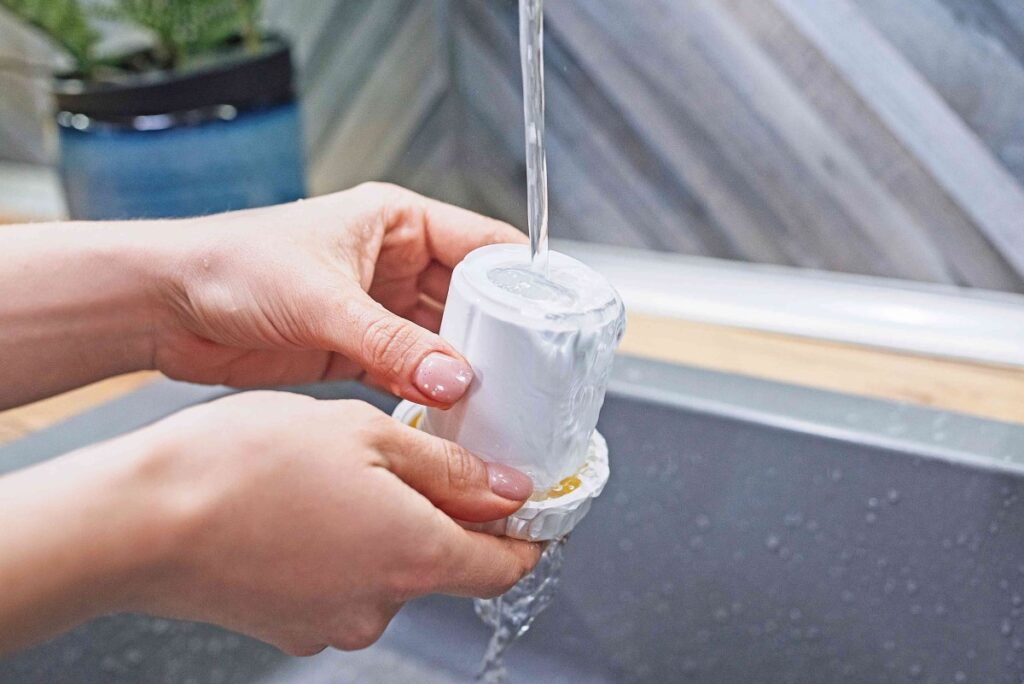We have increasingly become aware of the need to drink clean and safe water. Bottled water seemed to solve the issue, but studies have shown that bottled water is not the cleanest either for our bodies or the environment. This is why more and more people from all over the world are investing more in water filters.
The numerous types of available water filters have been proven to make water safer for our bodies. These filters have further been shown to be more environmentally friendly because you won’t end up with plastic bottles lying around and destroying the environment. Water filters ensure that the water you drink and use in your home or office tastes better and is free of odors. Here, we will look into the different water filtration system options that you should consider, whether you are a domestic or commercial user. Depending on the water pollutants you wish to remove from the water, there is always an ideal filter that will perfectly do the job.
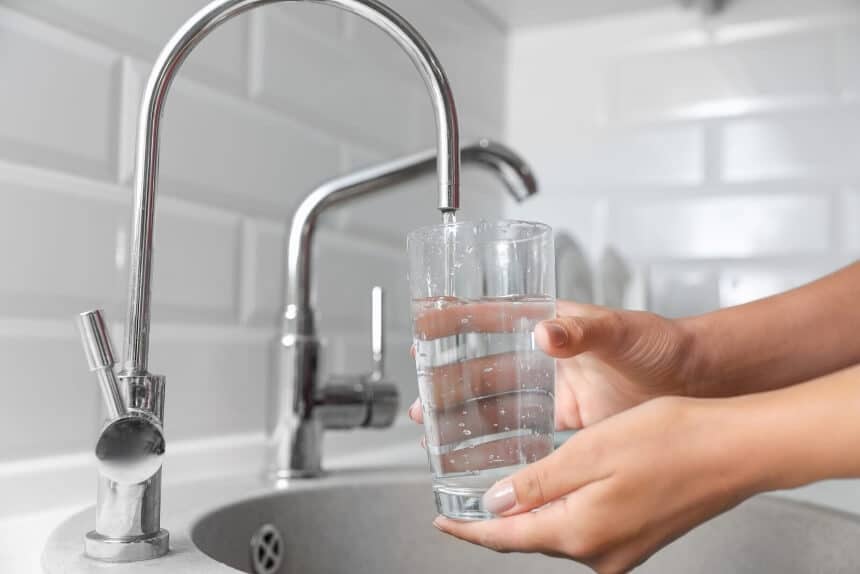
How a water filtration system works depends a lot on the impurities you wish to extract and water quantity. Such a system should capture all the contaminants or pollutants that you don’t want from the water. Whether commercial or at home, a water filtration system should use any of the following ways;
Ideally, a water filtration system removes all the contaminants such that the water you draw from the output end is free of those impurities. These filters can be attached to the mains, making the water coming out of the kitchen tap free of impurities. Though providers of water to the general public invest heavily in different types of water filtration systems, you can further install the inline, fridge, or drop-in filters.
Many elements are soluble in water. As water runs from mountain tops through valleys, rivers, and municipal pipes, it collects all manner of elements. Some of these elements are harmful, while others are vital in making the water nourishing and healthy. Some of the elements you will find in ‘raw’ water include vital minerals, dirt, pollen, pesticides, and microorganisms. A deeper look will help us understand the harmful water contaminants Trusted Source Types of Drinking Water Contaminants | US EPA Description and examples of categories of drinking water contaminant. www.epa.gov you are supposed to remove from your water;
Even though the water boards and municipal leaders assure us that the water running from our kitchen faucets has been treated, many people have found this not to be enough, and with good reason. So the main question then is whether you should install a filtration system for the entire house or just the kitchen faucet.
The type of water filtration system picked is determined by several factors. You will find that the water’s biochemical properties, budget, water pressure, and water’s intended use are some of the things to consider. Below, we will look into eight filtration systems to go for, whether you are a domestic user or a commercial one.
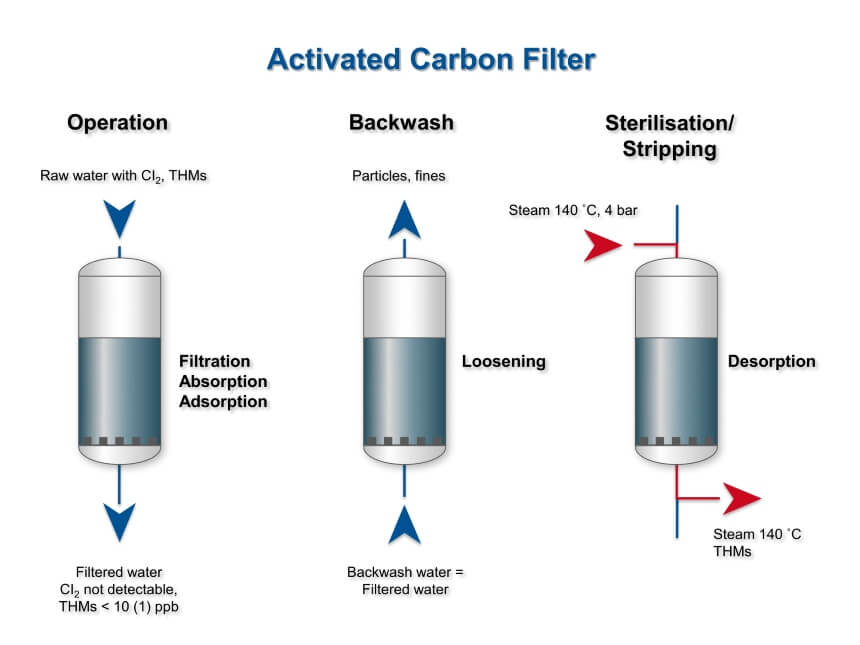
The activated carbon filters are ideal in extracting all manner of compounds from the municipal water. They’re also effective when it comes to eliminating bad water tastes and odors.
With this system, more minerals are retained, bacteria growth is inhibited, and more contaminants are removed. It’s durable and it embraces green technology. Among the things that won’t leave you happy though, is the system’s failure to remove dissolved solids. It is incapable of eliminating viruses and can’t achieve a high water flow rate.
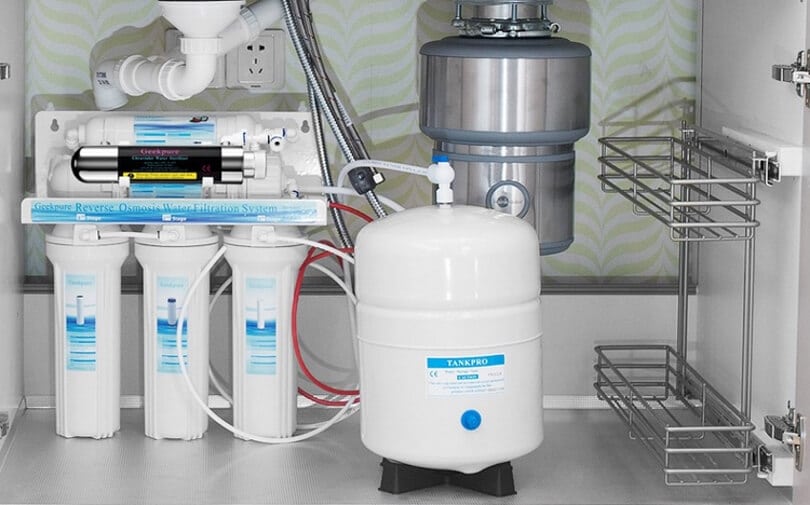
To make the reverse osmosis an effective system that can be used even on municipal water which contains chlorine, carbon filters and pre-filters are often used alongside it.
With this system, you will get the purest water possible. You don’t have to worry about pesticides, and the lifespan is at least two years. On the downside, this system is costly, not to mention quite inefficient. It will require about three gallons of water to give you one.
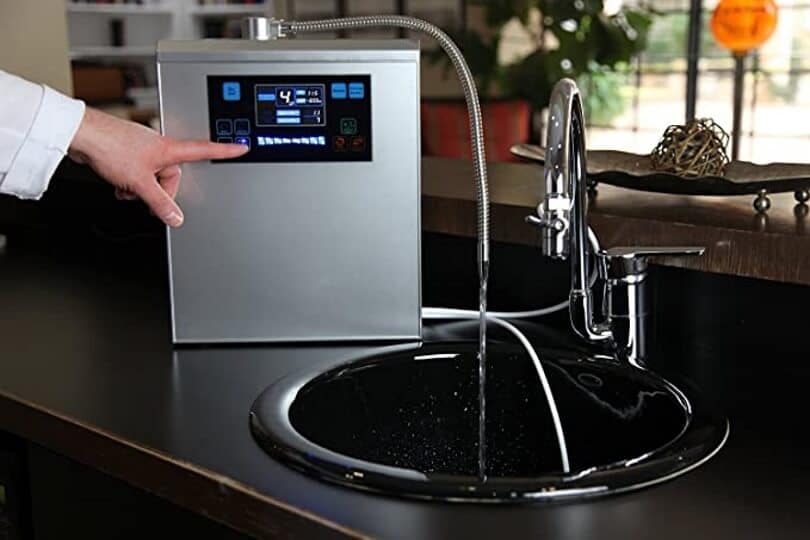
Because this process has its disadvantages, it is often used together with reverse osmosis filters. When watering plants, it is better to use potassium chloride instead of sodium chloride because there will be lower salt levels.
With the leading water ionizers in the market, removing organic contaminants is easy and very effective. You also remove hard metal ions and all the negatively charged contaminants. However, you might not overly fall for this system because it comes with high operating costs, and it’s incapable of removing organic contaminants.
Distillation is a water purification process where water distillers heat water in order to turn it into steam. This steam is collected in a clean container and returned into liquid. By doing this, contaminants are left behind when all the water evaporates.
The system’s efficiency is high as clean water is guaranteed at the end. It is a practical process that can be used on a small scale. It can be used in households, often on countertop distillers.
This is one of the most reliable purification processes today and will eliminate most of the water contaminants. It also captures solids. On the downside though, the process is time-consuming, and the operating costs are quite high. Something else to note about distillation is that the water has a bland taste.
Distillation knowledge can help you in outdoorsy emergencies in case you’ll need clean water source:
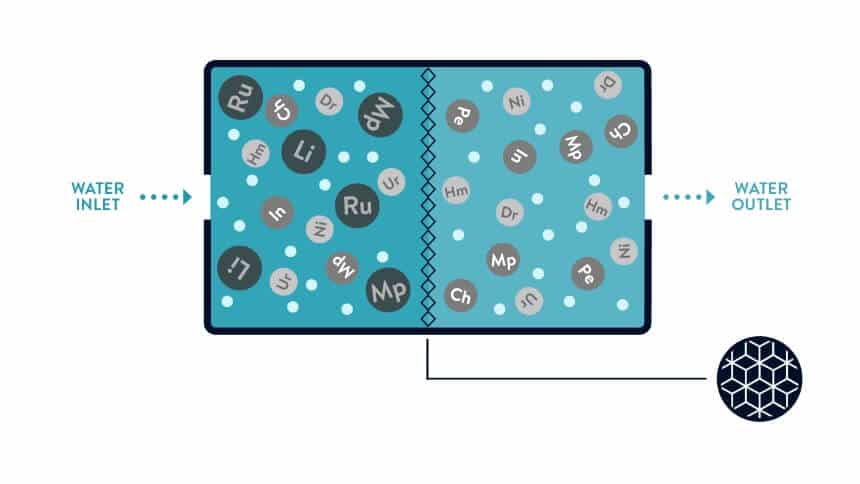
Generally, this filter is made from pleated polyester or blown polypropylene. The filter will generally have a micron rating of anything between 1 and 100 microns. Larger micron reading in a filter means faster water flow rate. However, contaminants captured will be few. Fewer micron rating means a filtration will be slower, but you will get cleaner water.
With this filtration system, you will save money and will have an easy time removing contaminants in your water. However, you need to look for a filter that will eliminate chemical contaminants of less than 1 micron.
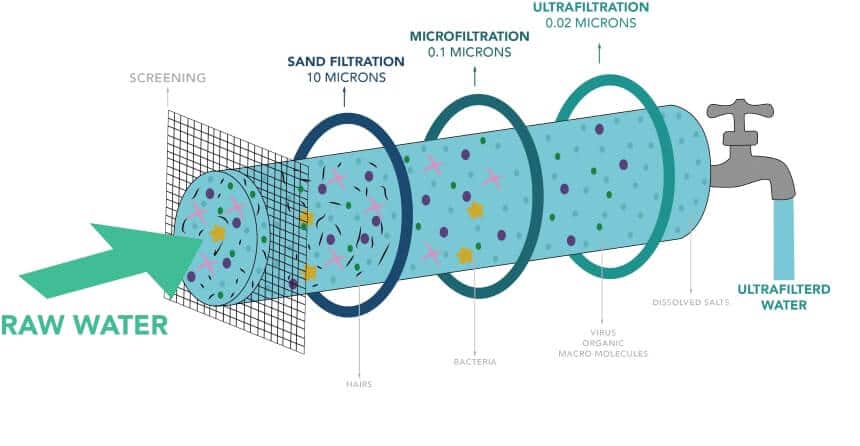
You can get a special UF membrane that has a micron rating of between 0.01 and 0.02. These small pores guarantee that your filter captures even microscopic contaminants like viruses.
This system is environmentally friendly and will afford you a fast water flow rate. While almost all contaminants are captured, you can rest easy knowing that essential minerals are retained. The one thing that will not amuse you about this technology is the failure to capture dissolved elements, chlorine taste and smell.
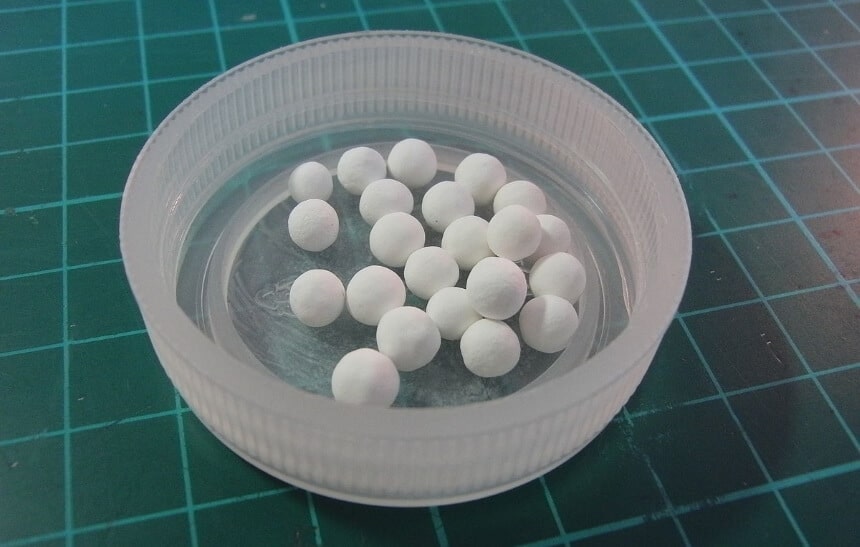
Aluminum oxide whose chemical formula is AI203 has been used to make this filter. It very many pores on its surface and this makes it possible to capture up to 99% of the fluoride in the water.
This filtration system is preferred by many because it is cost effective and also because it helps in capturing almost all fluoride that is contained in water. The only annoying thing about it is that it leaches aluminum into the water.
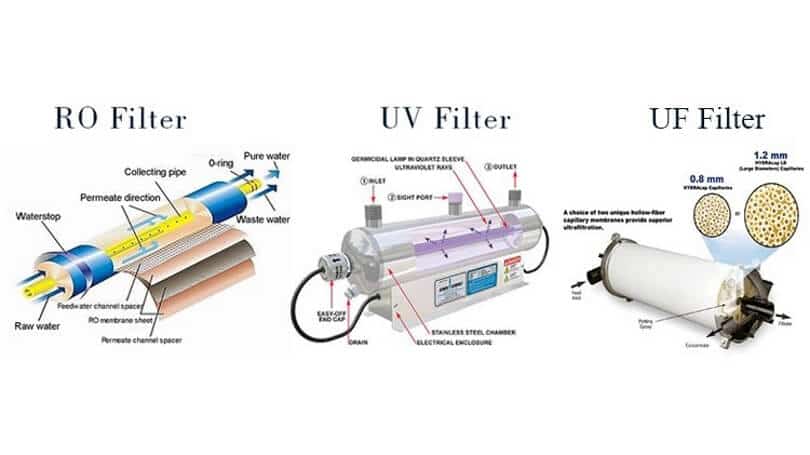
When using this technology, pass water through a UV lamp. The energy from the UV lamp will destroy the microorganisms. Note that the microorganisms with thick skin will require that you use extra UV power.
With this system, you get to enjoy relatively lower operating costs. The technology doesn’t demand high maintenance and is environmentally friendly. While it has a chance of killing up to 99.99% of microorganisms, this becomes very difficult if there are sediments in the water.
The water we use in our homes contains impurities. Even though the said water is treated and distributed by reliable municipal authorities, more often than not, you will notice the water has excess chlorine and other contaminants.
There are several types of water purification options that you can opt for and which will give you the exact results you are looking for. You can choose between a point of entry or a point of use system. Here are the six different types of water filters that you should shop for when you want to make the water being used in your home safe and clean.
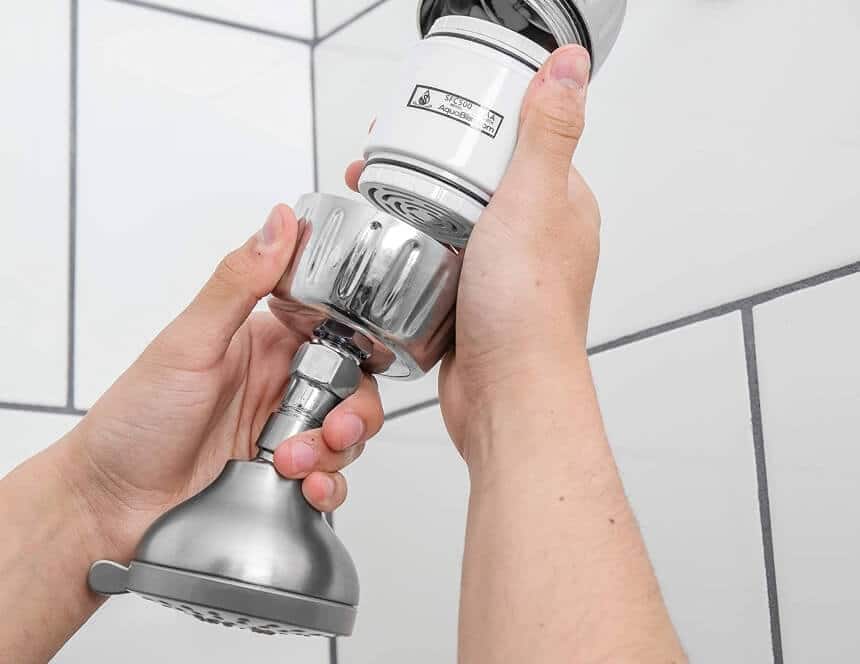
The faucet-mounted filtration systems, together with shower systems, are usually standard. You should be able to easily be able to make the faucet alternate between giving you unfiltered water and filtered.
With the faucet and shower filters, you’ll have an easy time installing them. Moreover, they are quite affordable. One thing to keep in mind before installing the system is that it can slow down the water flow. Since faucets are different, some will be incompatible with some faucet filters.
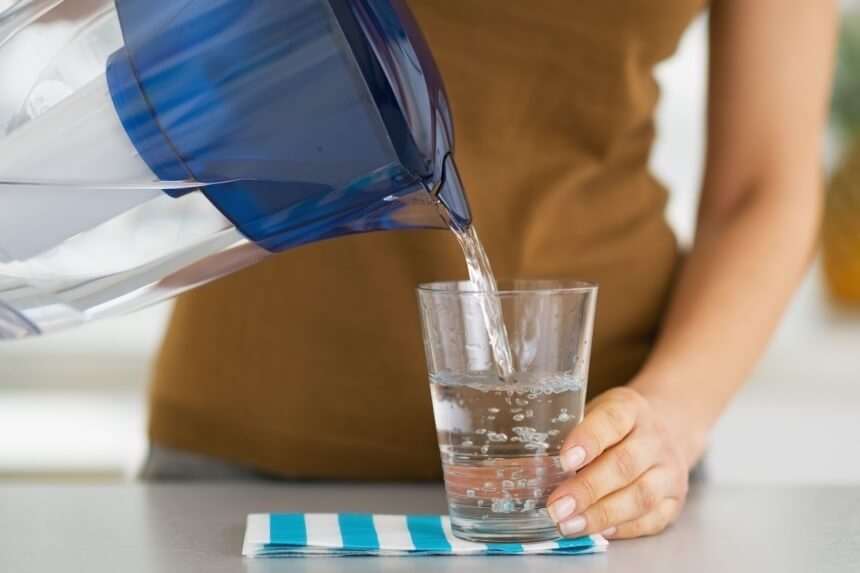
An activated carbon filter or some media filter will be used in making a sediment filter for the pitcher. Normally, the filter is very light, and this makes it easy to carry the pitcher around. Something to note about these filters is that they’re slow in filtering and should be replaced on a regular basis.
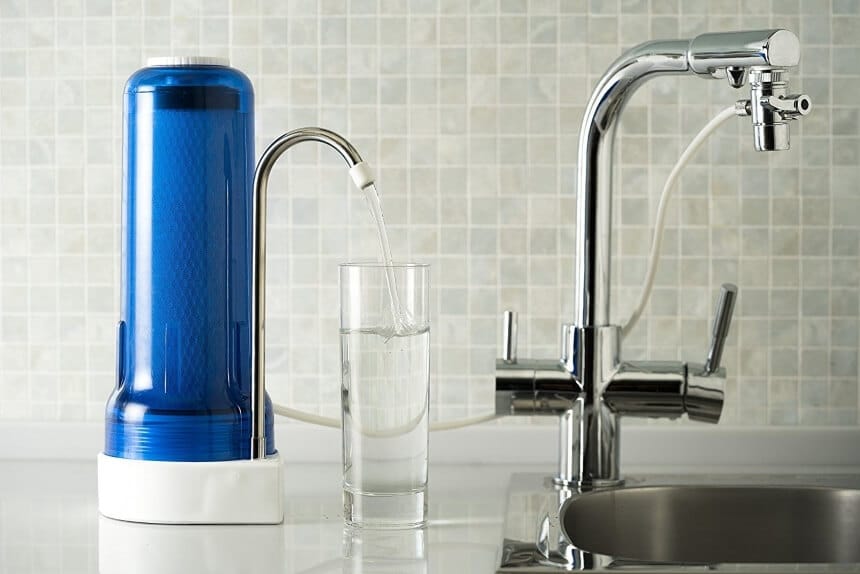
It is also possible to come across filters that filter two or three types of contaminants. This is because a single type of filter cannot filter heavy metals, sediments, chlorine, and microorganisms. That being the case, you can buy a countertop filtering system that incorporates two filters.
While we totally agree with the practicability of having a countertop filter in your home, we notice that the price can be quite high. Moreover, installing such a filter requires an expert. In the case of multiple filters being fixed, ensure the space below the sink is adequate.
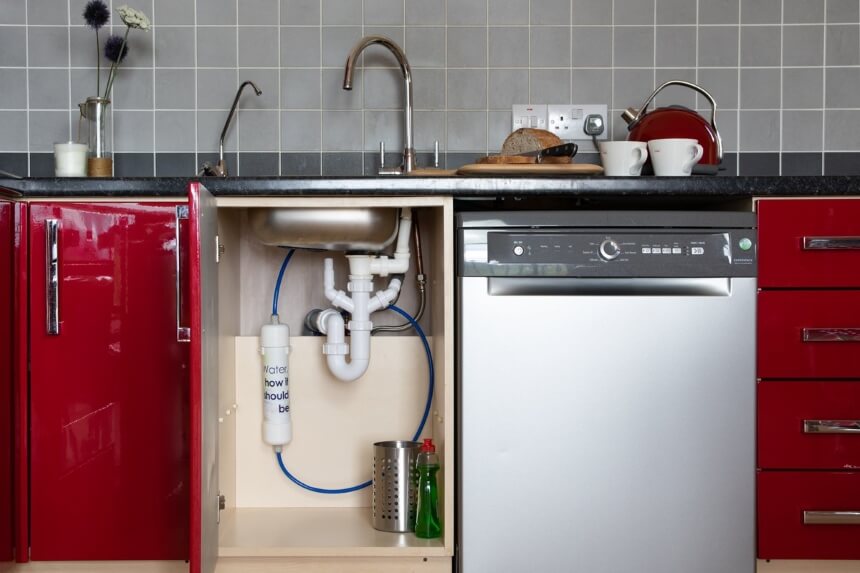
Many people are embracing this technology because it saves on space and money. Because of the specially installed faucet, the kitchen’s aesthetics improve drastically. Under-sink filters are preferred by many because they filter a lot of water and don’t occupy precious space on the countertop. However, they require professional plumber to install and they can be quite expensive
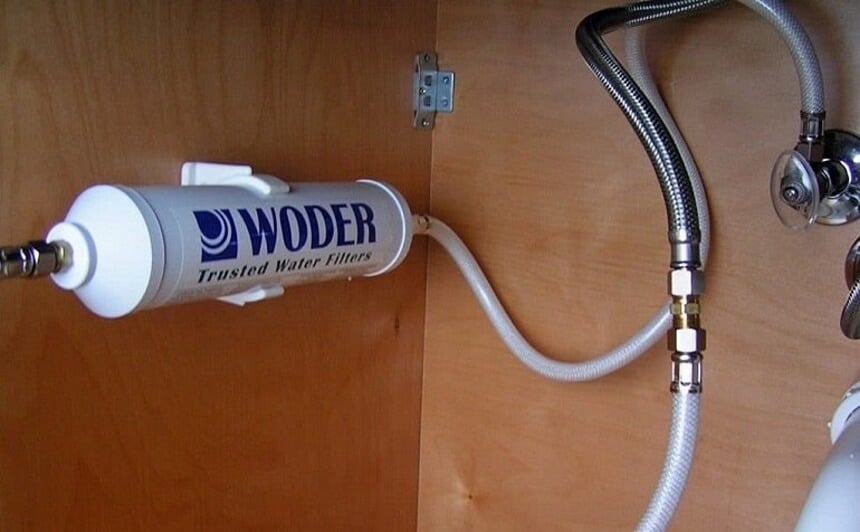
Once the water enters the filter, it passes through a media where it is filtered before it can reenter the tap for use in the house. The one benefit of installing this filter is that it is kept out of sight and is quite effective when it comes to killing contaminants. However, they require the expertise of a plumber to install and maintain.
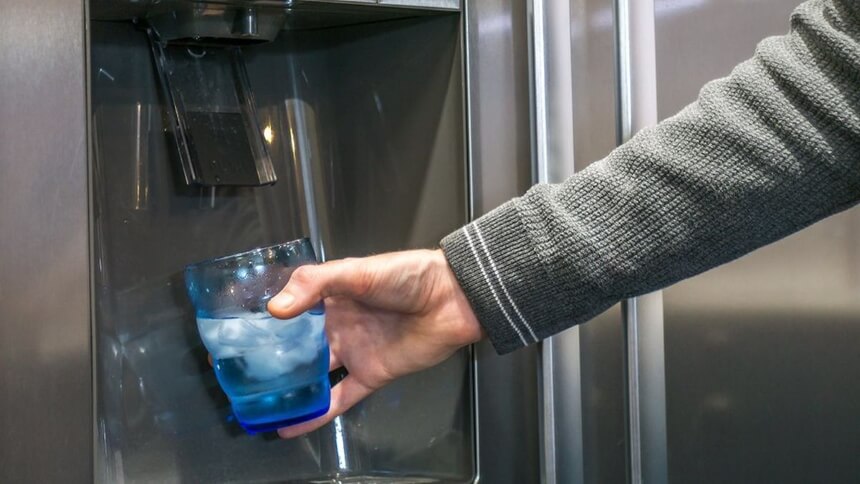
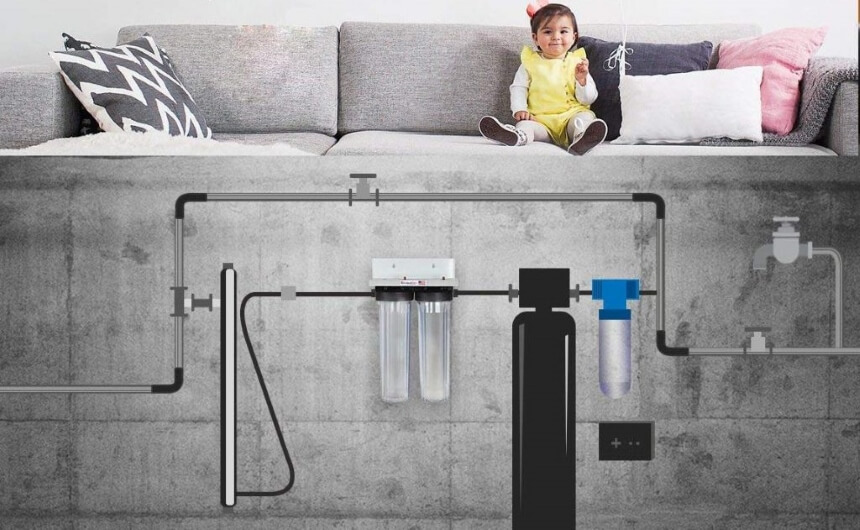
The best of these best whole house water filter will eradicate VOCs from the water and if the water is hard. The main disadvantage that rides on this filter is the high price tag. You also require to do some professional plumbing and modification to the house and water pipes.
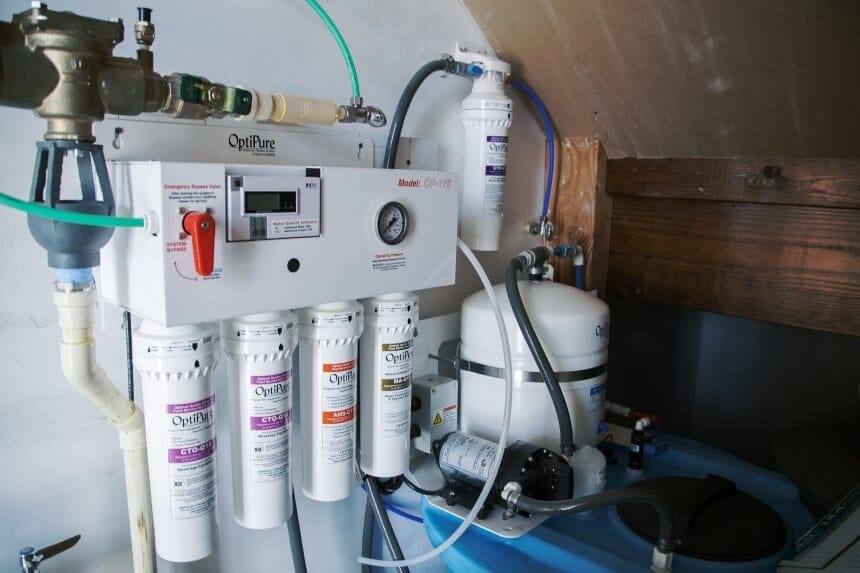
Reverse osmosis filters – You will find this system in medical and dental establishments where commercial water treatment is required. You can also sight the system in alcohol distillation and food and beverage establishments. Some of the components the system incorporates include atmospheric pressure tank and backwashing micron fibre.
Deionization system – As stated earlier, deionization involved replacing all negatively charged atoms and positively charged ones of the contaminants. The replacing atoms are hydrogen atoms which are positive and hydroxyl which are negative. This concept makes deionization a preferred way of purifying water in industries and commercial establishments.
Water is the central component of everything we see on our planet. People are required to drink at least two liters of water daily. On the one hand, while you must drink enough water to keep your body healthy, there is a need to take clean water not to jeopardize your health. People are increasingly abandoning the bottled water crusade and embracing the now popular water filter movement.
To get the best water filtration solution requires first establishing the contaminants you desire to eliminate. When your municipal authority sometimes messes things up and your tastes and smells like chlorine, buy a filter that will remove such contaminants. If using water from a well, invest in a whole-house filtering system which will remove hard metals and other pollutants. After reading this article on the different types of water filters, it becomes easy picking yours.
